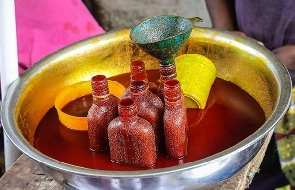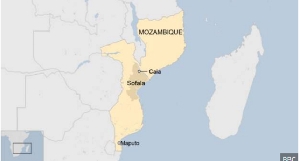Opinions of Tuesday, 19 February 2019
Columnist: Paul Kwabena Amaning
Making Ghana the next palm oil destination in the world
Palm Oil is one of the most profitable lands uses in the tropics. For the main producing Countries, Palm Oil can significantly contribute to national economies, driving rapid economic growth and contributing to the alleviation of rural poverty.
A research conducted by my team and myself indicated that lack of quality technological infrastructure for extraction and milling processes, lack of government support and less attention to farmers in the oil palm industry are some reasons Ghana is unable to supply palm oil to compete fairly with Malaysia, Indonesia and other Countries on the world market.
The unflinching desire to resurrect the palm oil production and making Ghana the next destination and dominant force for Palm Oil caused me to register the Artisanal Palm Oil Millers and Outgrowers Association of Ghana at the Registrar-General Department of Ghana.
Nevertheless, unsustainable production also has to potentially negative economic consequences for local and global levels in contributing to habitat destruction, pollution, and climate change.
Malaysia exported around 16.7 million tonnes of Palm Oil in 2010, with a value of about 15 Billion US Dollars, equivalent to over 9% of the Country’s total exports. At the same period, Indonesia exported 16.7 million tonnes, with a value of 14. 8 Billion US Dollars, equivalent to over 12% of the Country’s exports.
The Palm Oil Industry is a significant contributor to job creation and rural income in Malaysia and Indonesia. The Palm Oil development at the local level has played a significant role in reducing rural poverty and improving infrastructure in Malaysia and Indonesia.
The European Union (EU) imported over 9 million tonnes with a value of 5.4 Billion Euros of Palm Oil and Palm Kernel Meal in 2020 alone.
In the United Kingdom alone, Palm Oil imports created about 6, 800 jobs and contributed 330 Million Pounds to the GDP and 140 Million Pounds to Tax Revenues.
There are a huge market and potential for the Palm Oil Industry globally and locally. The Artisanal Palm Oil Millers and Outgrowers Association of Ghana led by Mr. Paul Kwabena Amaning through the business model of the Association would implement the following initiatives and programmes geared towards ensuring the total transformation of the Palm Oil Industry in Ghana:
1. Provide financial assistance to members under a policy called Single Own Processor to enable members acquired and owned top-notch milling and extraction machine.
2. Offer services to members at affordable fee who are unable to purchase the milling and extraction machine.
3. Ensures sustainability of the use of certified Palm Oil by members.
4. Offer the training services and capacity building to members.
5. Serves as the mouthpiece and liaison organization between Government and members.
The Artisanal Palm Oil Millers and Outgrowers Association of Ghana currently have about 3,000 registered members across the Country predominantly in the 10 Oil the producing Regions in Ghana such as Ashanti, Eastern, Volta, Oti, Central, Western, Western North, Bono, Bono East, and Ahafo.
However, according to the record of Ghana Statistical Service, in 2015 the average quantity of Palm Oil consumed locally by Ghanaians at both Industrial and Individual level is around 285,000 metric tonnes. This is measured against the annual production of 155,000 metric tonnes. The shortfall of the 130, 000 metric tonnes could be easily further reduce if measures are not put in place to curtail such an ugly situation.
The only solution to address the shortfall and subsequently triple the production of the Palm Oil is the adoption of the Technology proposed by the Artisanal Palm Oil Millers and Outgrowers Association of Ghana.
The proposed Technology would increase the recovery rate of Palm Oil from the FFB from 8% to 18% on average.
Henceforth, all other things being equal we are expecting to achieve at least a 100% increment in Palm Oil Production in the Country if the proposed Technology of Artisanal Palm Oil Millers and Outgrowers Association of Ghana is adopted by the Government of Ghana for its Palm Oil Producers.
We are entreating others to come on board and register with the Association for the collective good.
The Association would like to also urge the Government to take Palm Oil Industry seriously since the Industry has the potential to positively contribute to the GDP and Tax Revenues of the country.
About the Association
The Artisanal Palm Oil Millers and Outgrowers Association of Ghana founded and led by Mr. Paul Kwabena Amaning is ever ready and very determined to ensure that Ghana becomes the leading producer and exporter of Palm Oil in the World beating Malaysia and Indonesia, and completely takes over the whole African Market as well.
The Artisanal Palm Oil Millers and Outgrowers Association of Ghana was birthed to address the challenges undermine Oil Palm Plantation, influence Government Policy on Oil Palm Plantation, serves as the mouthpiece and consultant to Oil Palm Farmers/Producers and Consumers, and support the research, planning, technology and Machinery towards the production, extraction and milling processes of Palm Oil in Ghana.













